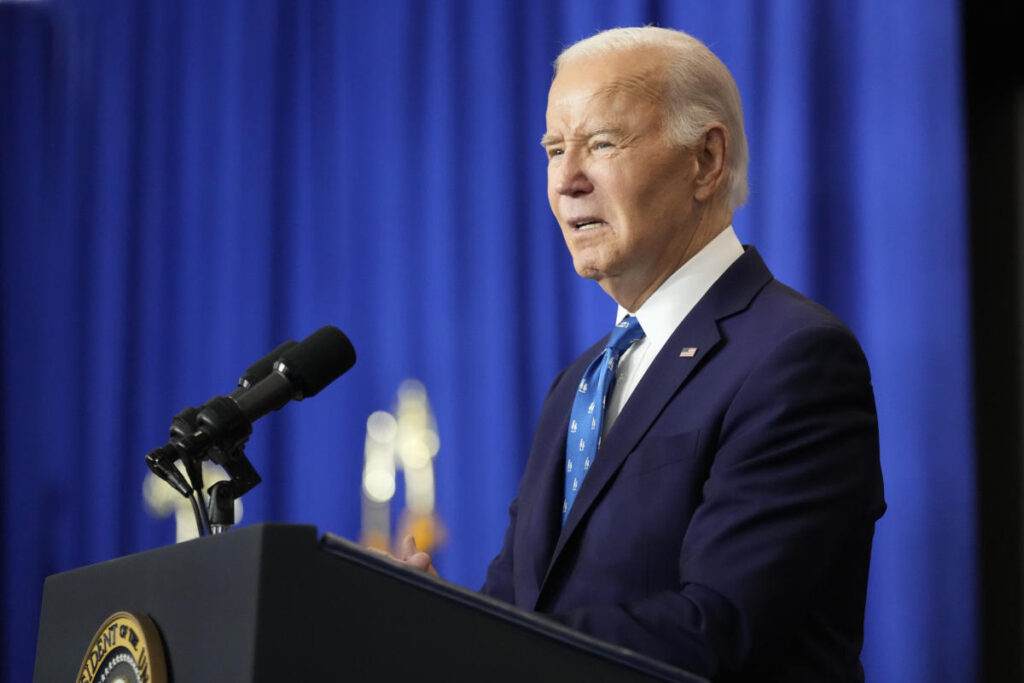On Monday, President Joe Biden exercised his veto power against a bipartisan proposal aimed at adding 66 federal district judgeships, citing the “hurried action” taken by the House of Representatives as a key reason for his decision. This piece of legislation was put forth with the intent to implement the new judgeships gradually over a period exceeding ten years, allowing for the appointments to be spread across three presidential administrations and six congressional sessions. The bill was crafted with a bipartisan approach, ensuring neither political party could gain an unfair advantage in the composition of the federal judiciary. Despite receiving unanimous support in the Democratic-controlled Senate during its passage in August, the proposal was brought to the House floor under a Republican majority only after Donald Trump’s reelection, which raised questions about the motivations behind its expedited consideration.
Biden’s veto statement highlighted several critical concerns regarding the proposed legislation. He expressed that important questions concerning the allocation of the new judgeships remained unresolved. Moreover, he noted that neither the House of Representatives nor the Senate had adequately examined how the existing roles of senior status judges and magistrate judges might impact the actual need for additional judgeships. Biden stressed the necessity for careful assessment and more thorough inquiry into these issues, suggesting that the effective administration of justice could be compromised by proceeding without such consideration. He argued that establishing life-tenured judgeships without a clear understanding of their necessity could lead to inefficiencies within the judicial system.
In his statement, Biden pointed out specific issues with the proposed expansion, such as the bill also proposing the creation of new judgeships in states where current vacancies had not yet been filled. This angle suggested that the emphasis on expanding the judiciary may have been more politically motivated rather than based on an objective assessment of judicial workload or case backlogs. By vetoing the legislation, Biden effectively thwarted its progression within the current Congress, rendering it unlikely that it would be revisited in its existing form. Overriding the veto would necessitate a two-thirds majority in both the House and Senate, a threshold the initial House vote notably did not meet.
The response to Biden’s veto was swift, particularly from Republican Senator Todd Young of Indiana, who characterized the decision as misguided. Young implied that Biden’s actions were illustrative of a broader issue with his presidency, using pointed comparisons to Biden’s recent pardon of his son Hunter on federal charges. Young criticized Biden by asserting that he prioritized providing relief to family members entangled in legal issues over addressing the judicial backlog affecting countless Americans. The senator’s comments reflect a growing sentiment among some lawmakers who view Biden’s judicial policy decisions as lacking commitment to procedural justice for ordinary citizens.
Supporters of the bill, including various organizations representing judges and attorneys, advocated for the creation of new judgeships as a necessary step to alleviate significant delays in case resolutions and improve access to justice. These advocates pointed out that the existing judiciary was overstretched, and the absence of new judges exacerbated issues already present within the legal system. They voiced disappointment at the veto, advocating for the need for reform in the federal judiciary to meet the demands of an increasing caseload and a growing population seeking legal recourse.
In conclusion, the vetoed legislation and President Biden’s rationale for rejecting it underscore a fundamental tension between the need for judicial reform and the complexities of legislative processes. The veto highlights not only the intricacies involved in establishing additional judgeships but also reflects the broader political context within which such decisions are made. As lawmakers reflect on this executive action, both sides of the aisle will likely continue to grapple with how to efficiently address the pressing needs of the federal judiciary while maintaining a cooperative legislative environment. The debate over judicial appointments, thus, remains a critical issue in American politics, particularly as it intertwines with broader questions of access to justice and equitable legal representation.

